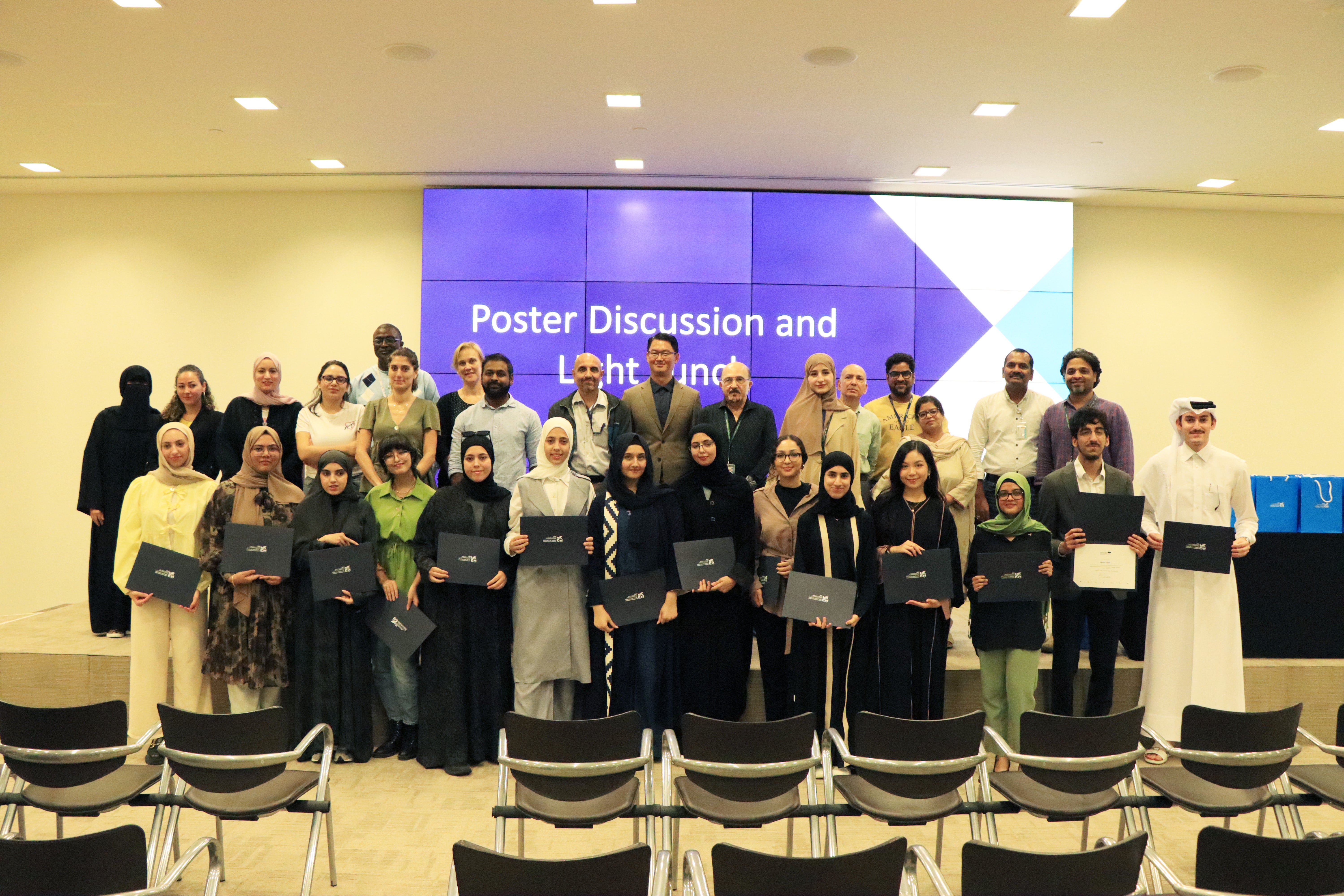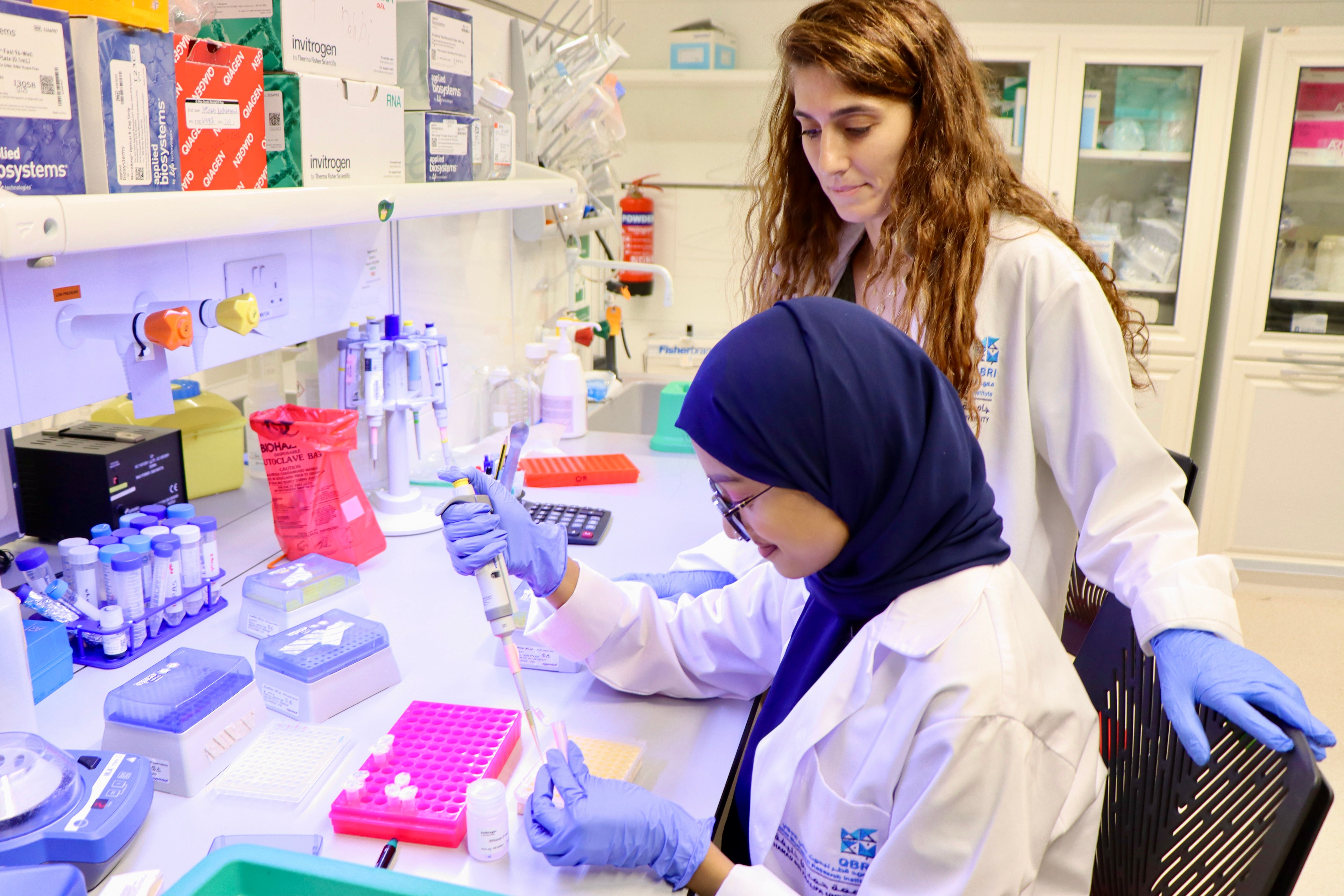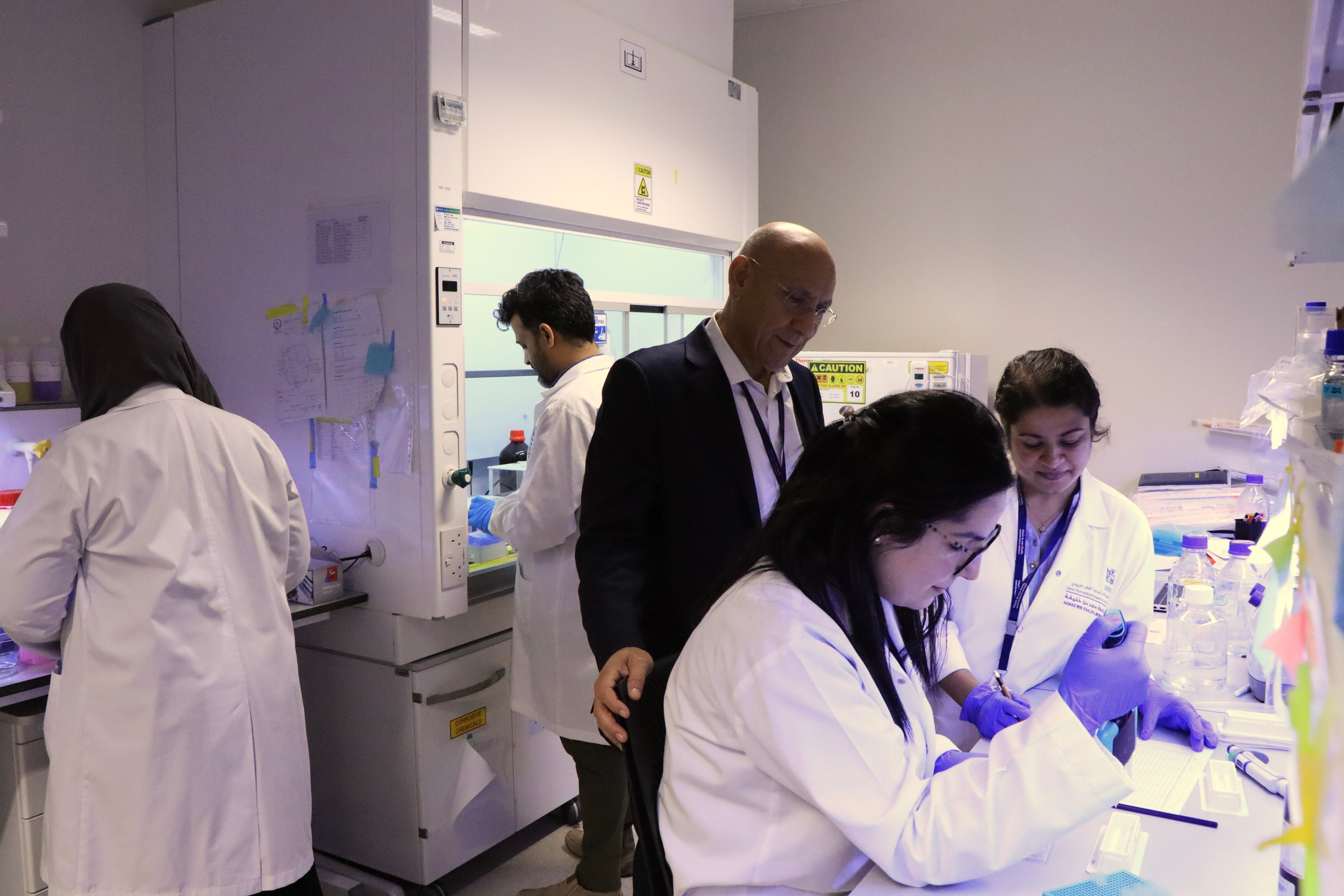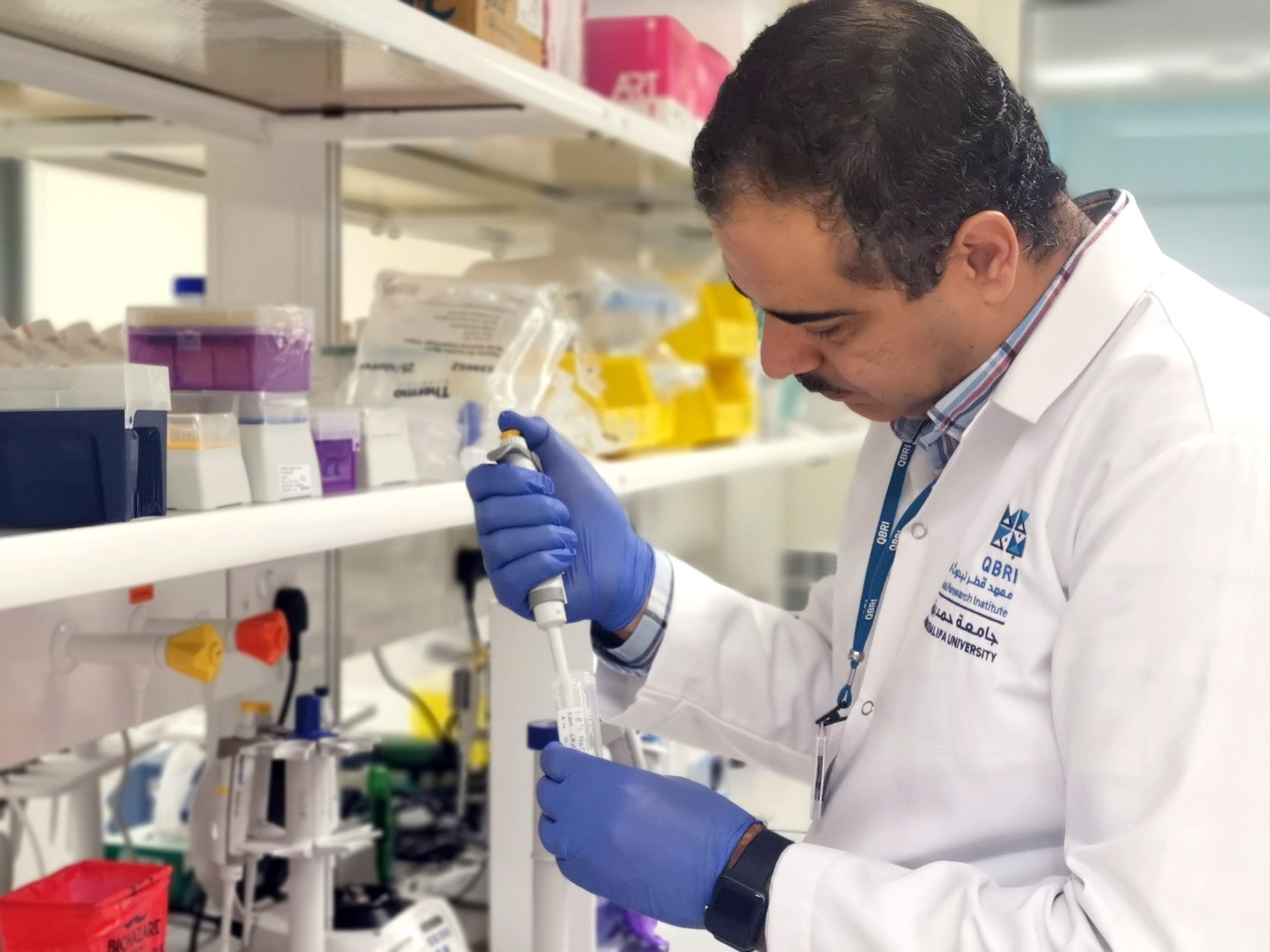
Qatar Biomedical Research Institute and Harvard Stem Cell Institute Hold First Symposium
Inaugural symposium forms part of five-year collaborative agreement
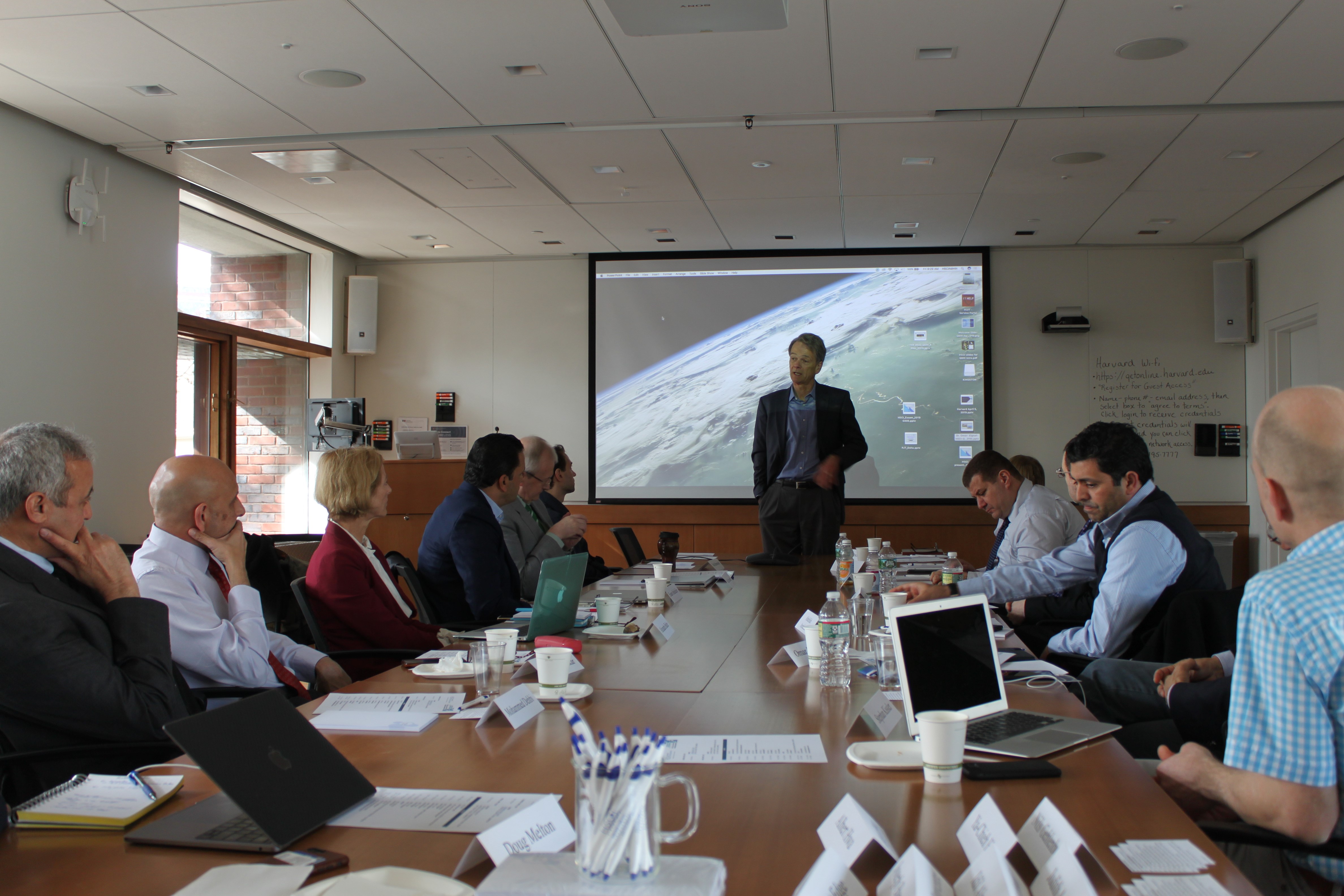
Qatar Biomedical Research Institute (QBRI), part of Hamad Bin Khalifa University (HBKU), and the Harvard Stem Cell Institute (HSCI) recently held an inaugural symposium in Boston, United States as part of a five-year collaborative research and training agreement.
The symposium provided a platform for experts to discuss the latest research and breakthroughs on diabetes and stem cell biology and concluded on Saturday, April 20. It enabled scientists from both institutes to present their current research findings and propose specific research areas for upcoming projects.
Dr. Omar El-Agnaf, executive director at QBRI, said: “Stem cell research has long been identified as a core area of study presenting many promising prospects for diabetes therapy. Our partnership with HSCI is a significant step towards diabetes and stem cell research that can have a tangible and meaningful impact on their intended segments. The symposium provided an opportunity for scientists to share their expertise and collectively work towards breakthroughs in the research of diabetes. The event yielded fruitful outcomes, and we look forward to reaping mutual benefits that will undoubtedly arise from this collaborative agreement.”
Brock Reeve, executive director, HSCI said: "Meeting with our QBRI collaborators was an excellent opportunity to hear about research developments in Qatar, and to share knowledge in a range of areas from diabetes, cardiology, and nervous system diseases to bioinformatics and early-stage research programs. It was exciting to see our joint endeavors taking off and to discuss future projects, including clinical trials.”
In 2018, QBRI inked an important five-year agreement with HSCI that includes technical training and research in stem cell biology, which are essential for discovering viable treatments for diabetes.
As part of the collaborative agreement, the first project on stem cells and diabetes between the two entities was already launched. The joint project will make use of the unique integrated expertise at QBRI and HSCI and will enable researchers from the stem cell biology, diabetes, genomics and structural biology to collaborate and utilize diverse tools to discern the function of transcription factors expressed during pancreas development and play a critical role in β-cell functionality.
QBRI staff, working in the stem cells and diabetes field, now have the opportunity to be based in HSCI premises, where they can be trained, exchange knowledge and best practices with their Harvard peers, with the ultimate goal of translating discoveries into clinical trials and applications. So far, a QBRI core manager and researcher have benefitted from this experience, trained and conducted research at HSCI, with more staff and students set to make use of this valuable opportunity in the future.
As a result of this partnership, QBRI investigators have access to the largest collaborative network of stem-cell researchers globally. Clinical trials arising from agreement will be conducted with QBRI stakeholders, such as Hamad Medical Corporation and Sidra Medicine.
QBRI is committed to forging strategic partnerships with institutions who share in its aim to address major health challenges through research that can be used to develop preventative strategies for human diseases.
HSCI – a network of 1000 scientists at Harvard University and eight affiliated hospitals – is an advocate of research in stem cell biology and regenerative medicine. It is an influential partner for realizing QBRI’s ambitious strategic plan to develop the first cell-therapy program in the Middle East.
QBRI is one of three pioneering research entities within HBKU, each working progressively to advance knowledge and contribute to a burgeoning ecosystem that is supportive of innovation and excellence.
For more information on QBRI and its achievements, please visit qbri.hbku.edu.qa.
Related News

QBRI Partners with PHCC and QCRI to Combat Prediabetes Through New Screening Tool

QBRI and Sultan Qaboos University Collaborate on Autism Spectrum Disorder Research

HBKU's QBRI Unveils Promising Arabic Stimuli: A Step Forward in Autism Spectrum Disorder (ASD) Diagnosis

Unveiling New Insights into Dementia: Autoantibodies and Blood-Based Biomarkers

Embracing the Colors of the Autism Spectrum: The Importance of Early Intervention and Advocacy

100-Year Anniversary of the Discovery of Insulin is of Great Relevance to QBRI

Qatar Biomedical Research Institute and Qatar University Scientists Conclude the International Symposium on Role of Glycation in Food-Health-Disease
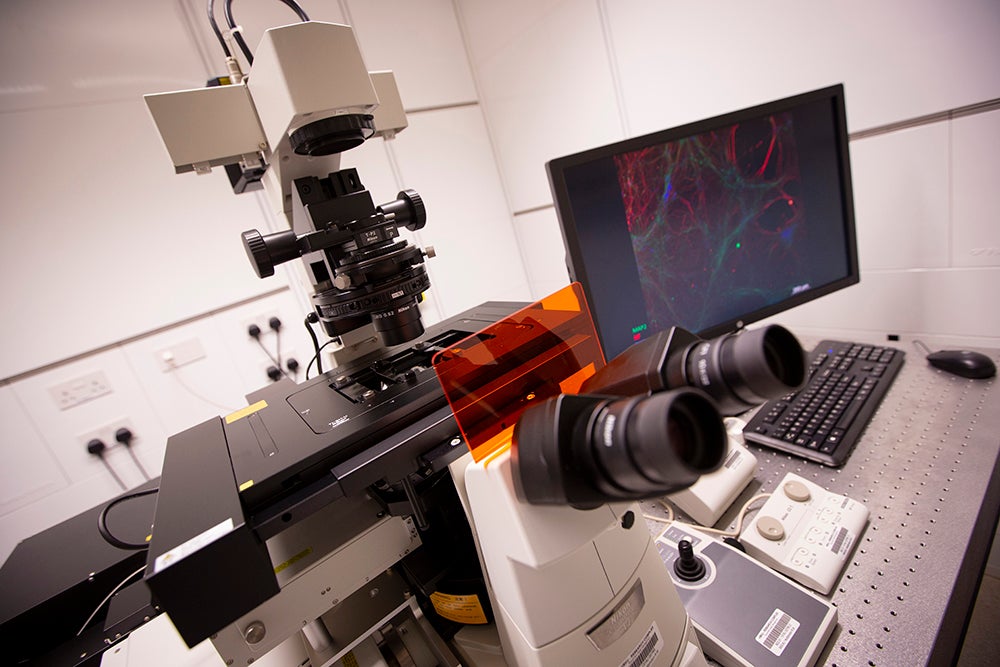
QBRI Joins Hands with Qatar University to Provide Research Analytical Services

QBRI Partners with PHCC and QCRI to Combat Prediabetes Through New Screening Tool

QBRI and Sultan Qaboos University Collaborate on Autism Spectrum Disorder Research

HBKU's QBRI Unveils Promising Arabic Stimuli: A Step Forward in Autism Spectrum Disorder (ASD) Diagnosis

Unveiling New Insights into Dementia: Autoantibodies and Blood-Based Biomarkers

Embracing the Colors of the Autism Spectrum: The Importance of Early Intervention and Advocacy

100-Year Anniversary of the Discovery of Insulin is of Great Relevance to QBRI

Qatar Biomedical Research Institute and Qatar University Scientists Conclude the International Symposium on Role of Glycation in Food-Health-Disease

QBRI Joins Hands with Qatar University to Provide Research Analytical Services

QBRI Partners with PHCC and QCRI to Combat Prediabetes Through New Screening Tool

QBRI and Sultan Qaboos University Collaborate on Autism Spectrum Disorder Research

HBKU's QBRI Unveils Promising Arabic Stimuli: A Step Forward in Autism Spectrum Disorder (ASD) Diagnosis

Unveiling New Insights into Dementia: Autoantibodies and Blood-Based Biomarkers

Embracing the Colors of the Autism Spectrum: The Importance of Early Intervention and Advocacy

100-Year Anniversary of the Discovery of Insulin is of Great Relevance to QBRI

Qatar Biomedical Research Institute and Qatar University Scientists Conclude the International Symposium on Role of Glycation in Food-Health-Disease

QBRI Joins Hands with Qatar University to Provide Research Analytical Services

QBRI Partners with PHCC and QCRI to Combat Prediabetes Through New Screening Tool

QBRI and Sultan Qaboos University Collaborate on Autism Spectrum Disorder Research

HBKU's QBRI Unveils Promising Arabic Stimuli: A Step Forward in Autism Spectrum Disorder (ASD) Diagnosis

Unveiling New Insights into Dementia: Autoantibodies and Blood-Based Biomarkers

Embracing the Colors of the Autism Spectrum: The Importance of Early Intervention and Advocacy

100-Year Anniversary of the Discovery of Insulin is of Great Relevance to QBRI

Qatar Biomedical Research Institute and Qatar University Scientists Conclude the International Symposium on Role of Glycation in Food-Health-Disease

QBRI Joins Hands with Qatar University to Provide Research Analytical Services

QBRI Partners with PHCC and QCRI to Combat Prediabetes Through New Screening Tool

QBRI and Sultan Qaboos University Collaborate on Autism Spectrum Disorder Research

HBKU's QBRI Unveils Promising Arabic Stimuli: A Step Forward in Autism Spectrum Disorder (ASD) Diagnosis

Unveiling New Insights into Dementia: Autoantibodies and Blood-Based Biomarkers

Embracing the Colors of the Autism Spectrum: The Importance of Early Intervention and Advocacy

100-Year Anniversary of the Discovery of Insulin is of Great Relevance to QBRI

Qatar Biomedical Research Institute and Qatar University Scientists Conclude the International Symposium on Role of Glycation in Food-Health-Disease

QBRI Joins Hands with Qatar University to Provide Research Analytical Services

QBRI Partners with PHCC and QCRI to Combat Prediabetes Through New Screening Tool

QBRI and Sultan Qaboos University Collaborate on Autism Spectrum Disorder Research

HBKU's QBRI Unveils Promising Arabic Stimuli: A Step Forward in Autism Spectrum Disorder (ASD) Diagnosis

Unveiling New Insights into Dementia: Autoantibodies and Blood-Based Biomarkers

Embracing the Colors of the Autism Spectrum: The Importance of Early Intervention and Advocacy

100-Year Anniversary of the Discovery of Insulin is of Great Relevance to QBRI

Qatar Biomedical Research Institute and Qatar University Scientists Conclude the International Symposium on Role of Glycation in Food-Health-Disease

QBRI Joins Hands with Qatar University to Provide Research Analytical Services

QBRI Partners with PHCC and QCRI to Combat Prediabetes Through New Screening Tool

QBRI and Sultan Qaboos University Collaborate on Autism Spectrum Disorder Research

HBKU's QBRI Unveils Promising Arabic Stimuli: A Step Forward in Autism Spectrum Disorder (ASD) Diagnosis

Unveiling New Insights into Dementia: Autoantibodies and Blood-Based Biomarkers

Embracing the Colors of the Autism Spectrum: The Importance of Early Intervention and Advocacy

100-Year Anniversary of the Discovery of Insulin is of Great Relevance to QBRI

Qatar Biomedical Research Institute and Qatar University Scientists Conclude the International Symposium on Role of Glycation in Food-Health-Disease

QBRI Joins Hands with Qatar University to Provide Research Analytical Services

QBRI Partners with PHCC and QCRI to Combat Prediabetes Through New Screening Tool

QBRI and Sultan Qaboos University Collaborate on Autism Spectrum Disorder Research

HBKU's QBRI Unveils Promising Arabic Stimuli: A Step Forward in Autism Spectrum Disorder (ASD) Diagnosis

Unveiling New Insights into Dementia: Autoantibodies and Blood-Based Biomarkers

Embracing the Colors of the Autism Spectrum: The Importance of Early Intervention and Advocacy

100-Year Anniversary of the Discovery of Insulin is of Great Relevance to QBRI

Qatar Biomedical Research Institute and Qatar University Scientists Conclude the International Symposium on Role of Glycation in Food-Health-Disease

QBRI Joins Hands with Qatar University to Provide Research Analytical Services

QBRI Partners with PHCC and QCRI to Combat Prediabetes Through New Screening Tool

QBRI and Sultan Qaboos University Collaborate on Autism Spectrum Disorder Research

HBKU's QBRI Unveils Promising Arabic Stimuli: A Step Forward in Autism Spectrum Disorder (ASD) Diagnosis

Unveiling New Insights into Dementia: Autoantibodies and Blood-Based Biomarkers

Embracing the Colors of the Autism Spectrum: The Importance of Early Intervention and Advocacy

100-Year Anniversary of the Discovery of Insulin is of Great Relevance to QBRI

Qatar Biomedical Research Institute and Qatar University Scientists Conclude the International Symposium on Role of Glycation in Food-Health-Disease

QBRI Joins Hands with Qatar University to Provide Research Analytical Services

QBRI Partners with PHCC and QCRI to Combat Prediabetes Through New Screening Tool

QBRI and Sultan Qaboos University Collaborate on Autism Spectrum Disorder Research

HBKU's QBRI Unveils Promising Arabic Stimuli: A Step Forward in Autism Spectrum Disorder (ASD) Diagnosis

Unveiling New Insights into Dementia: Autoantibodies and Blood-Based Biomarkers

Embracing the Colors of the Autism Spectrum: The Importance of Early Intervention and Advocacy

100-Year Anniversary of the Discovery of Insulin is of Great Relevance to QBRI

Qatar Biomedical Research Institute and Qatar University Scientists Conclude the International Symposium on Role of Glycation in Food-Health-Disease

QBRI Joins Hands with Qatar University to Provide Research Analytical Services

QBRI Partners with PHCC and QCRI to Combat Prediabetes Through New Screening Tool

QBRI and Sultan Qaboos University Collaborate on Autism Spectrum Disorder Research

HBKU's QBRI Unveils Promising Arabic Stimuli: A Step Forward in Autism Spectrum Disorder (ASD) Diagnosis

Unveiling New Insights into Dementia: Autoantibodies and Blood-Based Biomarkers

Embracing the Colors of the Autism Spectrum: The Importance of Early Intervention and Advocacy

100-Year Anniversary of the Discovery of Insulin is of Great Relevance to QBRI

Qatar Biomedical Research Institute and Qatar University Scientists Conclude the International Symposium on Role of Glycation in Food-Health-Disease

QBRI Joins Hands with Qatar University to Provide Research Analytical Services

QBRI Partners with PHCC and QCRI to Combat Prediabetes Through New Screening Tool

QBRI and Sultan Qaboos University Collaborate on Autism Spectrum Disorder Research

HBKU's QBRI Unveils Promising Arabic Stimuli: A Step Forward in Autism Spectrum Disorder (ASD) Diagnosis

Unveiling New Insights into Dementia: Autoantibodies and Blood-Based Biomarkers

Embracing the Colors of the Autism Spectrum: The Importance of Early Intervention and Advocacy

100-Year Anniversary of the Discovery of Insulin is of Great Relevance to QBRI

Qatar Biomedical Research Institute and Qatar University Scientists Conclude the International Symposium on Role of Glycation in Food-Health-Disease

QBRI Joins Hands with Qatar University to Provide Research Analytical Services

QBRI Partners with PHCC and QCRI to Combat Prediabetes Through New Screening Tool

QBRI and Sultan Qaboos University Collaborate on Autism Spectrum Disorder Research

HBKU's QBRI Unveils Promising Arabic Stimuli: A Step Forward in Autism Spectrum Disorder (ASD) Diagnosis

Unveiling New Insights into Dementia: Autoantibodies and Blood-Based Biomarkers

Embracing the Colors of the Autism Spectrum: The Importance of Early Intervention and Advocacy

100-Year Anniversary of the Discovery of Insulin is of Great Relevance to QBRI

Qatar Biomedical Research Institute and Qatar University Scientists Conclude the International Symposium on Role of Glycation in Food-Health-Disease

QBRI Joins Hands with Qatar University to Provide Research Analytical Services

QBRI Partners with PHCC and QCRI to Combat Prediabetes Through New Screening Tool

QBRI and Sultan Qaboos University Collaborate on Autism Spectrum Disorder Research

HBKU's QBRI Unveils Promising Arabic Stimuli: A Step Forward in Autism Spectrum Disorder (ASD) Diagnosis

Unveiling New Insights into Dementia: Autoantibodies and Blood-Based Biomarkers

Embracing the Colors of the Autism Spectrum: The Importance of Early Intervention and Advocacy

100-Year Anniversary of the Discovery of Insulin is of Great Relevance to QBRI

Qatar Biomedical Research Institute and Qatar University Scientists Conclude the International Symposium on Role of Glycation in Food-Health-Disease

QBRI Joins Hands with Qatar University to Provide Research Analytical Services

QBRI Partners with PHCC and QCRI to Combat Prediabetes Through New Screening Tool

QBRI and Sultan Qaboos University Collaborate on Autism Spectrum Disorder Research

HBKU's QBRI Unveils Promising Arabic Stimuli: A Step Forward in Autism Spectrum Disorder (ASD) Diagnosis

Unveiling New Insights into Dementia: Autoantibodies and Blood-Based Biomarkers

Embracing the Colors of the Autism Spectrum: The Importance of Early Intervention and Advocacy

100-Year Anniversary of the Discovery of Insulin is of Great Relevance to QBRI

Qatar Biomedical Research Institute and Qatar University Scientists Conclude the International Symposium on Role of Glycation in Food-Health-Disease

QBRI Joins Hands with Qatar University to Provide Research Analytical Services

QBRI Partners with PHCC and QCRI to Combat Prediabetes Through New Screening Tool

QBRI and Sultan Qaboos University Collaborate on Autism Spectrum Disorder Research

HBKU's QBRI Unveils Promising Arabic Stimuli: A Step Forward in Autism Spectrum Disorder (ASD) Diagnosis

Unveiling New Insights into Dementia: Autoantibodies and Blood-Based Biomarkers

Embracing the Colors of the Autism Spectrum: The Importance of Early Intervention and Advocacy

100-Year Anniversary of the Discovery of Insulin is of Great Relevance to QBRI

Qatar Biomedical Research Institute and Qatar University Scientists Conclude the International Symposium on Role of Glycation in Food-Health-Disease

QBRI Joins Hands with Qatar University to Provide Research Analytical Services

QBRI Partners with PHCC and QCRI to Combat Prediabetes Through New Screening Tool

QBRI and Sultan Qaboos University Collaborate on Autism Spectrum Disorder Research

HBKU's QBRI Unveils Promising Arabic Stimuli: A Step Forward in Autism Spectrum Disorder (ASD) Diagnosis

Unveiling New Insights into Dementia: Autoantibodies and Blood-Based Biomarkers

Embracing the Colors of the Autism Spectrum: The Importance of Early Intervention and Advocacy

100-Year Anniversary of the Discovery of Insulin is of Great Relevance to QBRI

Qatar Biomedical Research Institute and Qatar University Scientists Conclude the International Symposium on Role of Glycation in Food-Health-Disease

QBRI Joins Hands with Qatar University to Provide Research Analytical Services

QBRI Partners with PHCC and QCRI to Combat Prediabetes Through New Screening Tool

QBRI and Sultan Qaboos University Collaborate on Autism Spectrum Disorder Research

HBKU's QBRI Unveils Promising Arabic Stimuli: A Step Forward in Autism Spectrum Disorder (ASD) Diagnosis

Unveiling New Insights into Dementia: Autoantibodies and Blood-Based Biomarkers

Embracing the Colors of the Autism Spectrum: The Importance of Early Intervention and Advocacy

100-Year Anniversary of the Discovery of Insulin is of Great Relevance to QBRI

Qatar Biomedical Research Institute and Qatar University Scientists Conclude the International Symposium on Role of Glycation in Food-Health-Disease

QBRI Joins Hands with Qatar University to Provide Research Analytical Services

QBRI Partners with PHCC and QCRI to Combat Prediabetes Through New Screening Tool

QBRI and Sultan Qaboos University Collaborate on Autism Spectrum Disorder Research

HBKU's QBRI Unveils Promising Arabic Stimuli: A Step Forward in Autism Spectrum Disorder (ASD) Diagnosis

Unveiling New Insights into Dementia: Autoantibodies and Blood-Based Biomarkers

Embracing the Colors of the Autism Spectrum: The Importance of Early Intervention and Advocacy

100-Year Anniversary of the Discovery of Insulin is of Great Relevance to QBRI

Qatar Biomedical Research Institute and Qatar University Scientists Conclude the International Symposium on Role of Glycation in Food-Health-Disease

QBRI Joins Hands with Qatar University to Provide Research Analytical Services

QBRI Partners with PHCC and QCRI to Combat Prediabetes Through New Screening Tool

QBRI and Sultan Qaboos University Collaborate on Autism Spectrum Disorder Research

HBKU's QBRI Unveils Promising Arabic Stimuli: A Step Forward in Autism Spectrum Disorder (ASD) Diagnosis

Unveiling New Insights into Dementia: Autoantibodies and Blood-Based Biomarkers

Embracing the Colors of the Autism Spectrum: The Importance of Early Intervention and Advocacy

100-Year Anniversary of the Discovery of Insulin is of Great Relevance to QBRI

Qatar Biomedical Research Institute and Qatar University Scientists Conclude the International Symposium on Role of Glycation in Food-Health-Disease






